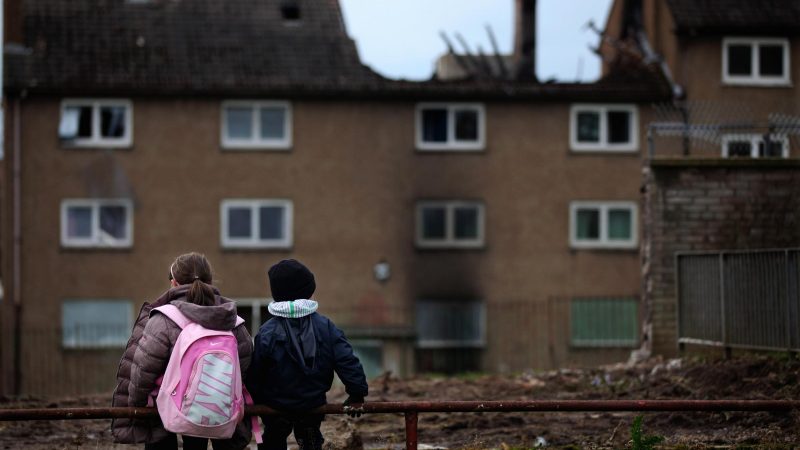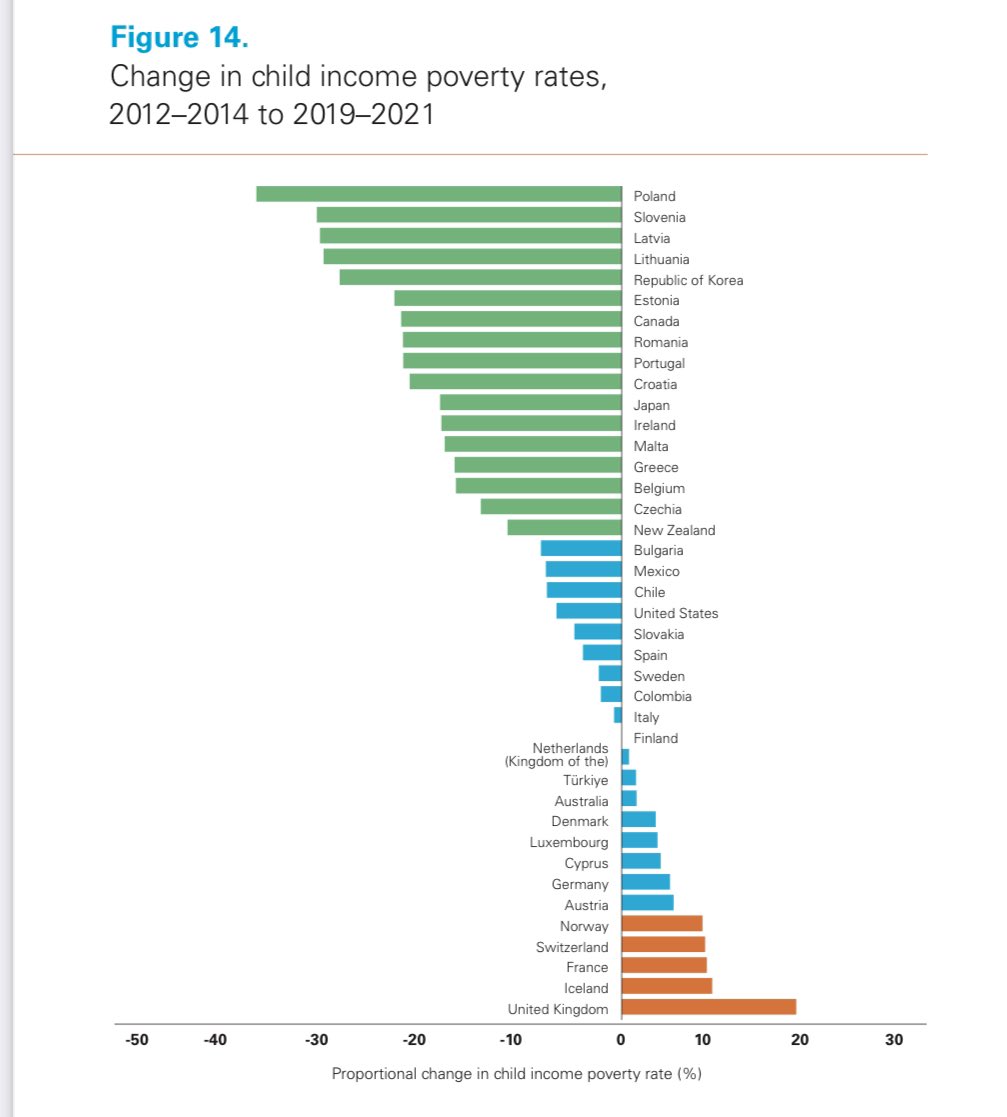he report compiled by UNICEF compared relative income poverty rates, which means the proportion of people who fall below a threshold relative to the income of the average person in the population.

A shocking chart produced by UNICEF shows the UK’s appalling record on child poverty, with the country having the worst rise in child poverty between 2012 and 2019 out of 39 of the world’s richest countries.
The UK has seen a 20% increase in child poverty since 2014 – the steepest rise among the 39 wealthiest OECD & EU nations. With the UK at the bottom of the table, Iceland was next worst with a significantly lower rise of 11%, while France had a 10.4% rise.
Other countries meanwhile had cut their child poverty rates, with Poland topping the table after cutting its child poverty rate by 37.6%, with Slovenia achieving a 31.4% reduction.
The report compiled by UNICEF compared relative income poverty rates, which means the proportion of people who fall below a threshold relative to the income of the average person in the population.
Jon Sparkes, chief executive of the United Kingdom Committee for Unicef, said: “Poverty experienced anywhere — and in any form — poses risks to children’s health, wellbeing and development.

“The consequences can last a lifetime and tackling it should be a national priority.
“While some countries in this group have taken steps to increase support, in the UK we have seen a reduction in spending on child and family benefits and more children growing up in poverty as a result.”
The government could take immediate steps to tackle child poverty, such as extending free school meals to the 800,000 children in poverty who are currently missing out as well as abolishing the two-child limit. The limit restricts child allowances in universal credit (UC) and tax credits (worth up to £3,235 a year) to the first two children in a family, unless the children were born before April 2017 when the policy was introduced.
If abolished it would lift 250,000 children out of poverty, and a further 850,000 children would be in less deep poverty at cost of just £1.3 billion.
The government however continues to favour tax cuts for the wealthy few, while millions of children remain in poverty.
Basit Mahmood is editor of Left Foot Forward
Left Foot Forward doesn't have the backing of big business or billionaires. We rely on the kind and generous support of ordinary people like you.
You can support hard-hitting journalism that holds the right to account, provides a forum for debate among progressives, and covers the stories the rest of the media ignore. Donate today.









